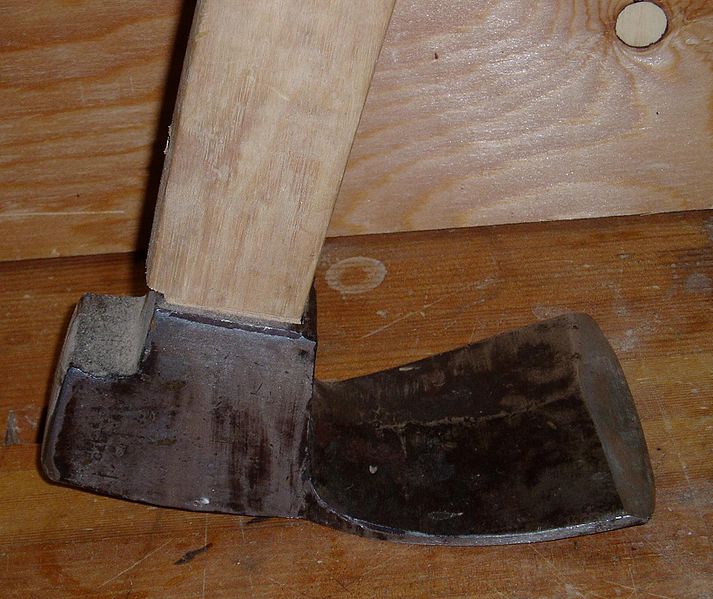Preparations:
1. The AP Multiple Choice Questions packet must be complete by Monday, April 27.
2. Read another work of "literary merit" of your choice by Thursday, April 30. Here's a list of books the school owns that you might consider: Slaughterhouse-Five, The Color Purple, Beloved, The Awakening, Equus. Here's a list of books that some of you have already read outside of class: Twelfth Night, The Things They Carried, Lolita, My Name is Asher Lev, On the Road, Moby-Dick (the school has copies of this), Heart of Darkness (the school has this too). I recently read Under the Volcano. Christopher Farmer recommends Ernest Hemingway; I've read The Old Man and the Sea, For Whom the Bell Tolls, and A Farewell to Arms. Read anything that you would feel comfortable using on a "Question 3" prompt on the AP test. Let me know what you're reading (or have very recently read) by writing the title and author in the comment box as soon as you know.
3. By Friday, May 1 complete the "Preparation for Question Three" handout for King Lear, the work of "literary merit" you have chosen, and two other books from this year (your choice of Invisible Man, Wide Sargasso Sea, Translations, Jane Eyre, A Portrait of the Artist, the two plays you read before Christmas, As I Lay Dying, and Galileo). That's four by May 1. (Then between May 1 and May 7 you'll complete two more--for a total of six.)
Here's the form:
Advanced placement: Preparation for Question Three
Novel & Play Review Sheet
Title: ____________________________ year published: ______ genre: ________
Author: _________________________________ (b. ________; d. ________)
Relevant background of author:
Relevant literary terms, philosophical terms, historical context, etc.
Characters (round/flat, dynamic/static) and characterization (direct, indirect: through what s/he says, what others say, what s/he does and looks like, etc.)
- Protagonist:
- Other significant characters:
How do the characters form a larger design? (Foils, parallels, other interrelationships)
Plot
conflict(s): internal/external; vs. self, vs. another person, society, vs. nature, vs. supernatural, vs. machine
development, pacing, resolution, patterns
Setting (time/place, type, purpose)
Tone (type, how conveyed)
Point of view (type(s))
Style & Diction (level, registers, figurative language, dialog, sentence structure, use of detail)
Themes (& how are they conveyed: through character, plot, setting, tone, point of view, style, etc.)
*
& while I'm reviewing here's what we've already done during term four.
1. You blogged in response to some aspect of any performance of King Lear.
2. You blogged in response to one or more poem by Fernando Pessoa's heteronyms.
3. Galileo work: 1. summary/response to scenes 12-14; 2. summary, analysis, quotation analysis of an assigned scene; 3. new character in (or affected by) your assigned scene*; 4. write a response to the way the scene you were assigned was performed -- what did you notice? how did the way the scene was depicted affect the meaning of the scene and play -- (or if you didn't see the Galileo performance: describe the scene has you would stage it and why).
[* Go to the scene you have been assigned. After reviewing the list of characters in the play, choose a character (not already involved in your scene) who you think might have a strong reaction (or interesting reaction) to something that is said or something that is done during your scene.
* Imagine what attitude the character you have chosen would have toward the scene. Why? What emotions does he or she feel? How might your character express that attitude and those emotions through an action?
1. Write down the character you have chosen. (For example you might choose to put the Pope (in disguise) into the Carnival scene. Or you might choose to have the children in the final scene hear about the ideas Galileo expresses in scene one. Or...)
2. Write down where the character is when s/he reacts to something said or done in your scene (you could add the new character to the scene or have the character hear about it at another time and place).
3. Write down who the character is with when reacting.
4. Write down what the character does to express her/his reaction (For Pope Urban hearing about Galileo's recantation might take off his official vestments and pray quietly in a corner, whereas Sagredo might try to continue making his breakfast but end up cutting himself while slicing fruit.)
5. If there's time act out your ideas for a classmate. Do this in pairs.]
Final Notes:
I want everyone to do well on the AP test and to get an A or B during fourth quarter. EVERYONE! I was depressed by some of the grade calculations I had to do this past weekend and I am sure some of you are no happier about the calculations. However, I was happy to respond to a lot of thoughtful insights about literature, the poems, and Lear. I spent perhaps too much time writing comments but I did it, so please make sure you get the comments I wrote about your literature essays and blog responses.















